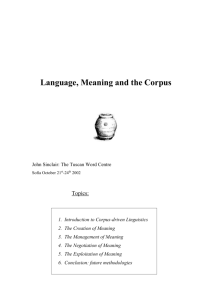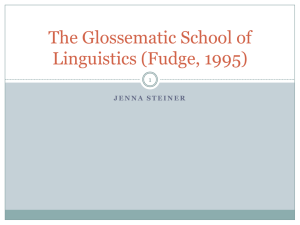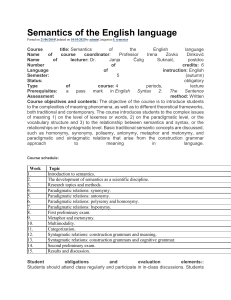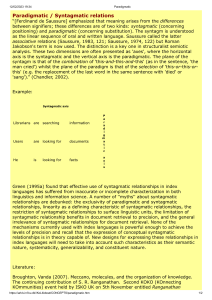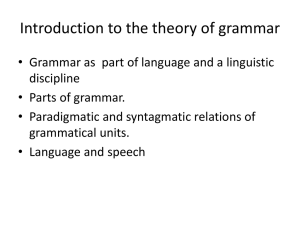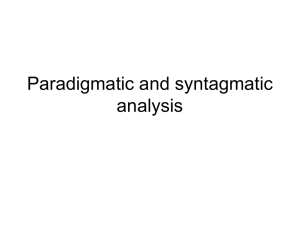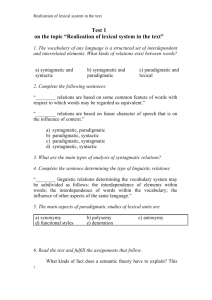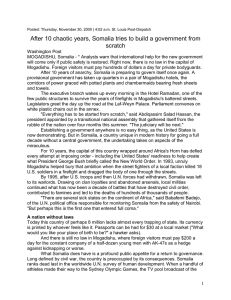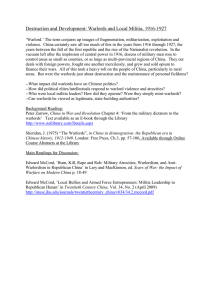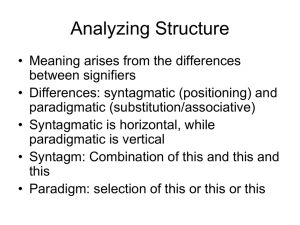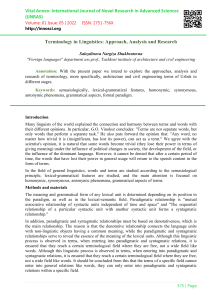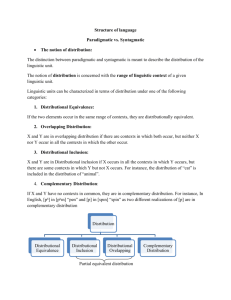lexical relations (1) - Università degli Studi di Roma Tor Vergata
advertisement
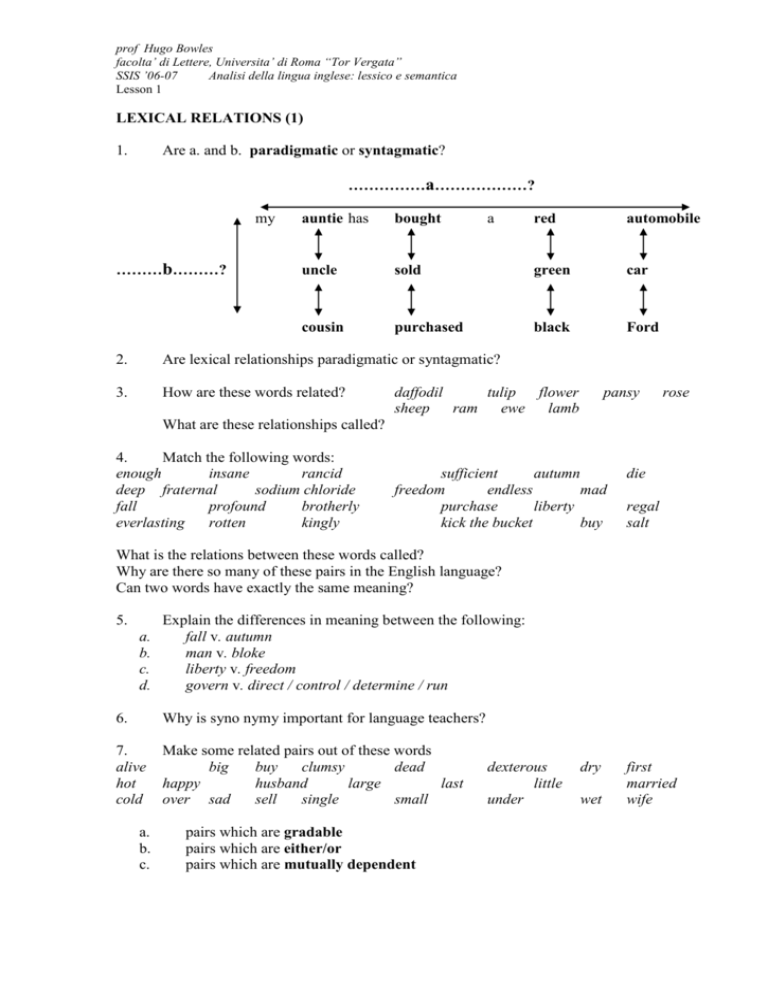
prof Hugo Bowles facolta’ di Lettere, Universita’ di Roma “Tor Vergata” SSIS ’06-07 Analisi della lingua inglese: lessico e semantica Lesson 1 LEXICAL RELATIONS (1) 1. Are a. and b. paradigmatic or syntagmatic? ……………a………………? my ………b………? auntie has bought uncle cousin a red automobile sold green car purchased black Ford 2. Are lexical relationships paradigmatic or syntagmatic? 3. How are these words related? daffodil tulip flower sheep ram ewe lamb pansy rose What are these relationships called? 4. Match the following words: enough insane rancid deep fraternal sodium chloride fall profound brotherly everlasting rotten kingly sufficient autumn freedom endless mad purchase liberty kick the bucket buy die regal salt What is the relations between these words called? Why are there so many of these pairs in the English language? Can two words have exactly the same meaning? 5. a. b. c. d. Explain the differences in meaning between the following: fall v. autumn man v. bloke liberty v. freedom govern v. direct / control / determine / run 6. Why is syno nymy important for language teachers? 7. alive hot cold Make some related pairs out of these words big buy clumsy dead happy husband large last over sad sell single small a. b. c. pairs which are gradable pairs which are either/or pairs which are mutually dependent dexterous little under dry wet first married wife 8. Imagine that you are writing a dictionary definition of the words bank and eye. Think of some examples to show the different meanings: eye bank What does the word eat mean in these sentences? to eat sweets to eat toffee to eat soup the beach was eaten away by the continuous storms 9. 10. mail Can you think of two or more different meanings of the following? pupil ear face tongue key charge run If you were writing a dictionary would you classify these words as polysemous or as homonyms? Understanding meaning (1) – vocabulary 1. Which of these words is an Italian student likely to understand? Put them in order of difficulty: fighters offensive left back withdrew ground warlords previously key held lawlessness Islamist fighters have left the Somali capital as government forces backed by Ethiopian troops advance on the city. As they withdrew, gunfire was heard and armed supporters of the city's warlords began taking control of key facilities. Some residents say lawlessness has returned to Mogadishu - which had been under Islamic rule for six months. Ethiopia began a large-scale offensive at the weekend to back Somalia's interim government, capturing ground previously held by Islamist militias. 2. What makes a word difficult to understand? 3. Highlight 5 words in the following text which you would focus on with a group of intermediate students and explain why. The BBC's Mohammed Olad Hassan in Mogadishu says clan militiamen appeared as soon as the news of the withdrawal emerged early on Thursday, and UIC offices have been looted. Residents in the north of the city have reported cars and mobile phones being stolen. Rising insecurity has forced most businesses to stop trading. The situation seems to be descending back into anarchy, our correspondent adds. Lab session – Materials writing 1 1. vocabulary? What kind of exercises can you use with reading passages to improve 2. Choose 10 words from this passage that you would use with a language class of intermediate or advanced students, explain why you have chosen them and write an exercise to test some of them.
